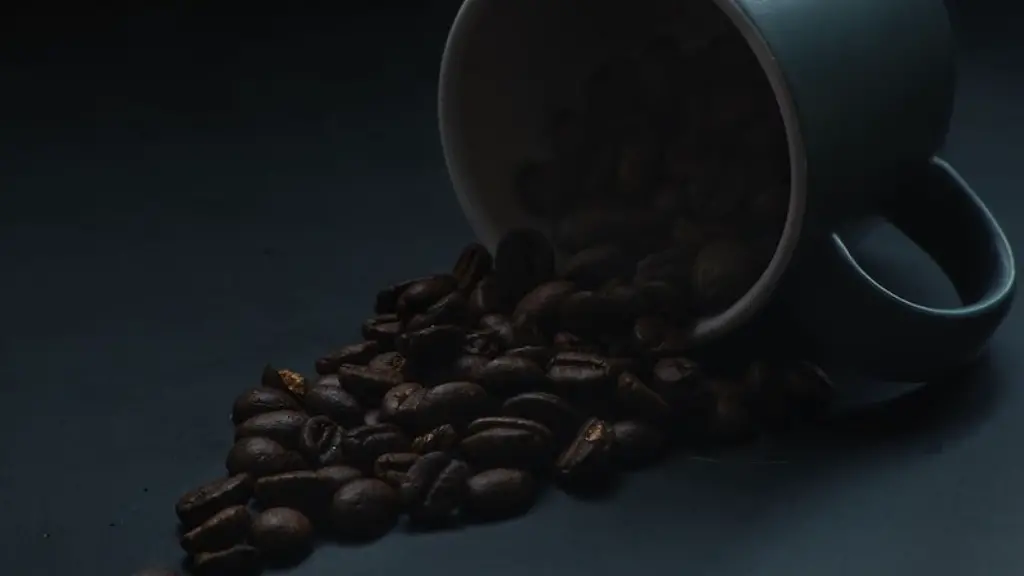Caffeine Content
Caffeine is found in both coffee and energy drinks, and which is considered healthier depends largely on how much caffeine you are getting from each. Coffee generally has around 95 milligrams of caffeine per 8-ounce cup, while energy drinks can contain anywhere from 50 to more than 100 milligrams in a single can or bottle. While some people may find a small amount of caffeine useful for staying alert and focused, consuming too much could cause a range of unpleasant side effects. According to the World Health Organisation, adults should aim to consume no more than 400 milligrams of caffeine each day.
Calorie Content
When it comes to comparing the calorie content of coffee and energy drinks, coffee is the clear winner. Unsweetened coffee has no calories and is not likely to affect your daily calorie or carb intake. On the other hand, adding sweeteners or syrups to coffee to make it creamy or sweet could add a significant number of calories, depending on what and how much you use. Energy drinks, on the other hand, often have 20 to 30 grams of sugar, which is roughly between 80 and 120 calories per can or bottle.
Nutrient Content
Coffee and energy drinks also differ in terms of their nutrient content, as energy drinks tend to contain a range of minerals and vitamins, usually in the form of B vitamins, and sometimes electrolytes. While some of these components can provide a range of health benefits, too much can be harmful. For example, consuming too much caffeine, vitamin B6, or electrolytes can lead to adverse effects such as headaches, nausea, and irregular heart cadence.
Healthy Add-ins
If you’d like to make your coffee or energy drink healthier, there are a few simple ways to do so. For coffee, adding some almond or oat milk can provide a healthy boost of calcium, vitamin D and essential fatty acids. You can also add a small amount of honey or unrefined sugar as an alternative to traditional sweeteners, while coconut or almond oil can also be used to add healthy fats and flavor. If you prefer energy drinks, look for those that are low in sugar, or use a natural sweetener such as stevia.
Analysis of Health Benefits
Aside from the differences in caffeine and calorie content, coffee and energy drinks also offer differing health benefits. Coffee is naturally high in antioxidants and has been linked to various health benefits, such as reducing the risk of cancer, type 2 diabetes and heart disease. Energy drinks, on the other hand, usually offer little in the way of health benefits, as they typically contain large amounts of sugar and artificial ingredients.
Synergistic Benefits
However, there are some synergistic benefits of combining both coffee and energy drinks. When consumed in moderation, these drinks can be a great way to stay sharp and focused. Consuming coffee prior to physical activity, for example, can provide a surge of energy and focus that can help you perform better and last longer when exercising. Adding an energy drink to the mix could provide an extra boost of energy and help you remain energized and focused during long workouts.
Impact of Regular Consumption
Despite the potential advantages of combining coffee and energy drinks, regular or excessive consumption of either could have a negative effect on your health. Coffee, for example, can lead to insomnia and stomach issues when consumed in high doses. Similarly, drinking too many energy drinks can lead to side effects such as jitters, anxiety, and headaches. Therefore, if you’re considering incorporating either of these beverages into your diet, it is best to practice moderation and speak to your doctor if you have any concerns.
Potential Drug Interactions
It is also important to note that consuming too much caffeine, either from coffee or energy drinks, could lead to adverse drug interactions in some people. For example, caffeine can interact with certain medications, such as antibiotics and antibiotics, and can also interfere with the absorption of essential vitamins and minerals. Therefore, if you are taking any medications or supplements, it is important to speak to your doctor before consuming coffee or energy drinks to ensure that there are no potential interactions.
Potential Immunity and Detoxification Impacts
In addition to affecting your energy levels, coffee and energy drinks can also have an impact on your body’s ability to eliminate toxins. Caffeine, for example, has been found to reduce the body’s natural detoxifying functions, which could lead to an increased risk of disease. Similarly, energy drinks can contain large amounts of sugar and unhealthy artificial ingredients, which may be harmful to your body’s detox system. Therefore, it is important to be mindful of the amount of caffeine, sugar and other ingredients in these drinks, as too much could lead to long-term health issues.
Impact of Chemicals on Brain and Mental Health
Finally, the chemicals in both coffee and energy drinks can have a negative impact on your brain and mental health. Caffeine, for example, can lead to increased anxiety, restlessness and irritability when consumed in high amounts. Similarly, energy drinks can contain some controversial ingredients, such as taurine and guarana, which have been linked to a range of mental health issues. Therefore, if you are looking to improve your mental health and cognitive performance, it is important to be mindful of the chemicals in your drinks and consult with a doctor before consuming them.


